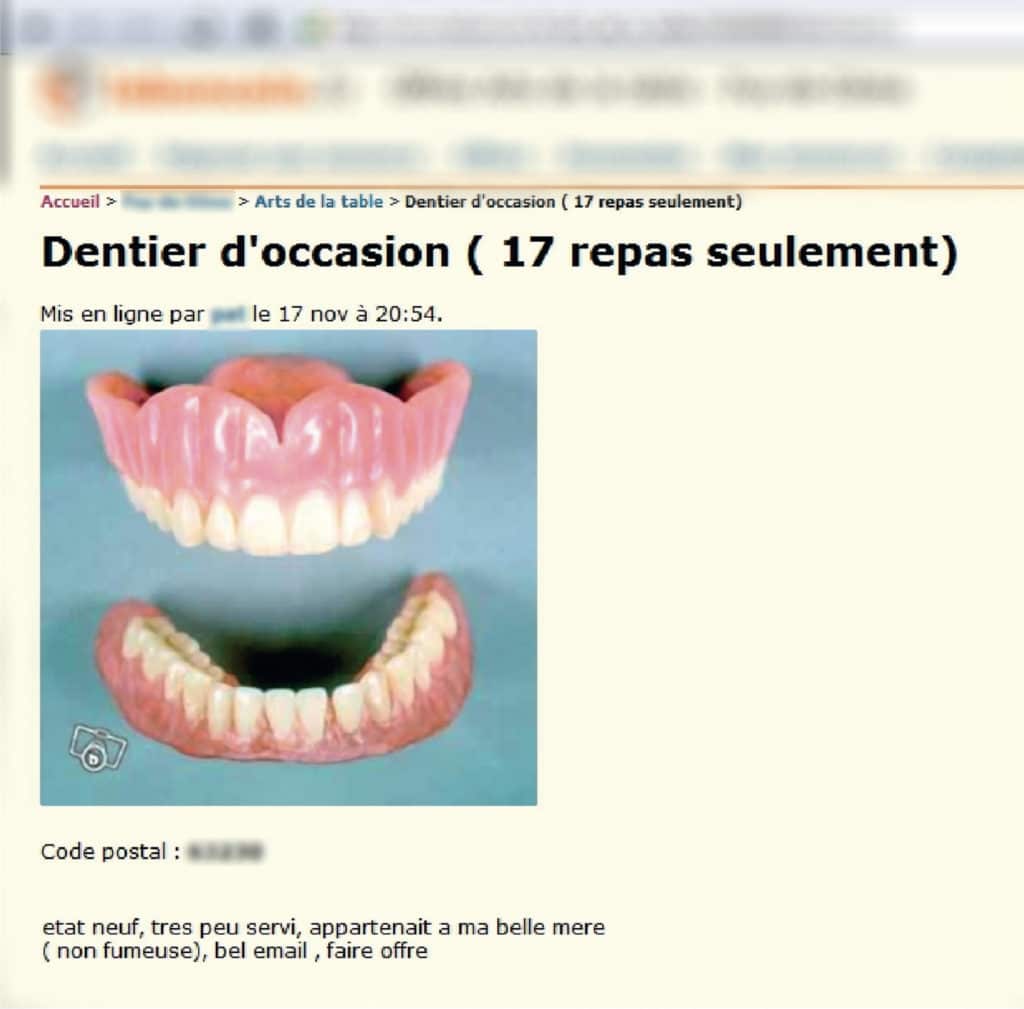Having yellow teeth is one of the worst faults of a smile for more than one in two French people.
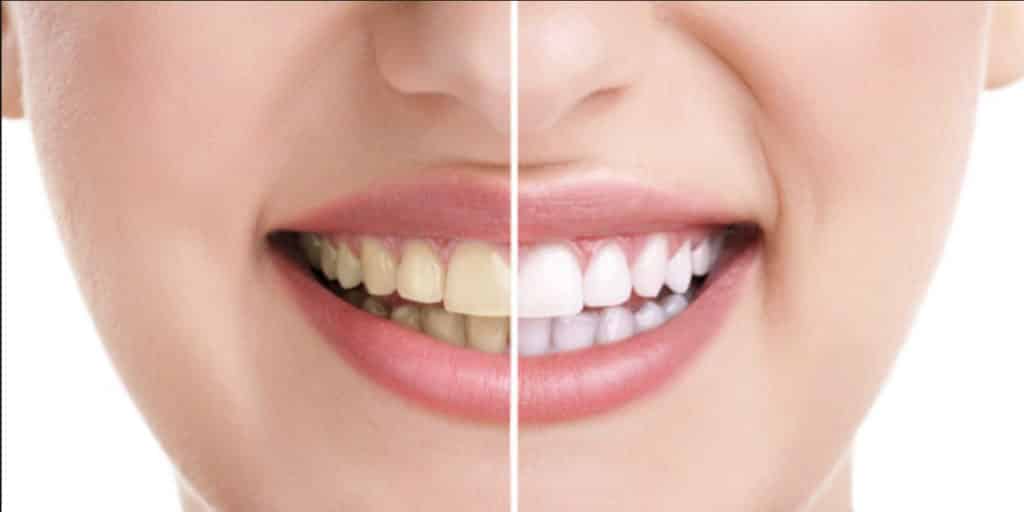

SMILE – Having a beautiful smile and beautiful teeth is important. In any case, that’s what the French seem to think. For 57% of them, having well-aligned teeth contributes to success, according to a survey conducted by Yougov for Align Technology Inc. conducted in March 2017 with a sample of 1004 people, shows that this seems all the more important for young people: 62% of 18-24 and 64% of 25-34 think that having aligned teeth makes for better success. More specifically, 29% of respondents believe that the alignment of teeth helps them to build new social relationships, and 28% that it can even help them in their love life. And 27% that it is an asset for their career. The yellow teeth: the worst defect of a smile The problem is that many French seem to feel complexed by their smile. 54% would like their teeth to be better aligned, 79% to be whiter. For 54% of respondents, having yellow teeth is one of the worst flaws of a smile. So to have a beautiful smile, 29% of adults surveyed say they are ready to undergo orthodontic treatment in case of good results envisaged. Remember that in France, according to a 2015 Harris poll for the French Orthodontic Federation, just over one in two French (53%) will be affected by a dental appliance.
Children lose their teeth because of a commonly consumed product
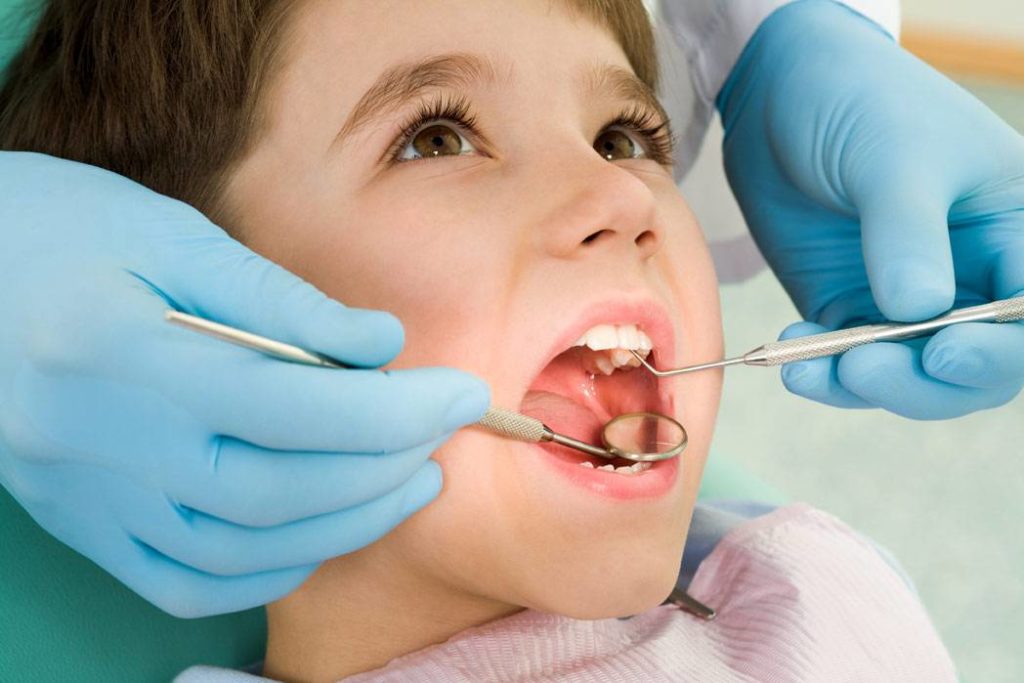

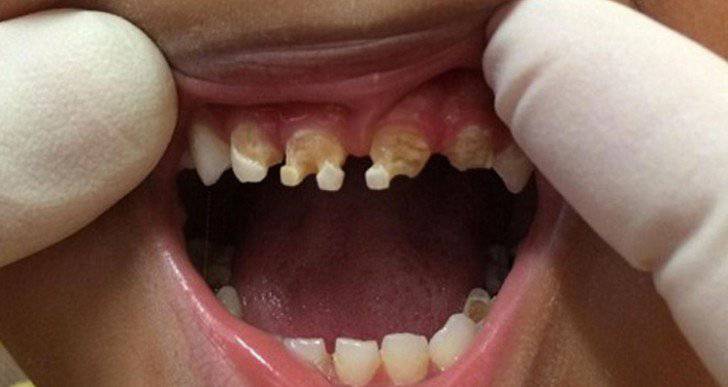

We owe this information to an Australian dentist, from the Royal Dental Hospital, who discovered that a product consumed every day by many children of the moment causes them very serious dental problems as a result of which they are forced to tear them away from their youngest age.
This dentist warns parents of the toxic danger of sugary soft drinks, all brands combined, whose effects are harmful and devastating on the teeth of children.
This is not exclusively the case of Australia, but of all countries around the world that market soft drinks containing sugar.
To support her conclusion, she recalls the case of a poor 3-year-old boy who had 10 of his teeth torn off because of a addicted on sugary soft drinks.
It is terrible that a small child loses half of his teeth from an early age because of the consumption of sugary drinks, especially that it will push him to isolate himself, to refuse to communicate with those around him and no longer able to eat properly.
Parents should pay attention to what their children consume, especially when it comes to sodas that are now considered toxic and destructive products.
By extension, this danger does not only affect toddlers and their small teeth but everyone also saw that sugary drinks cause problems of diabetes, a disruption of cholesterol and hormonal secretion that become chaotic because of sugar sodas.
Soft drinks and erosion of tooth enamel
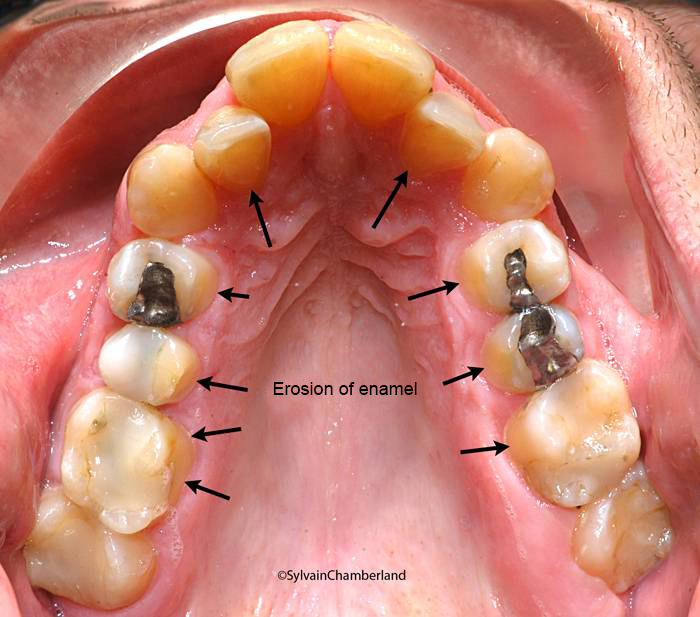

Dental erosion caused by frequent ingestion of soft drinks
Here are the teeth of a man who consumed 4 to 5 cans of soft drinks a day for several years. He kept each sip 15 to 20 seconds in his mouth between his tongue and his palate before swallowing. The arrows indicate the areas where the enamel has virtually disappeared. It has been dissolved. What we see and which is more yellow is dentine. Dentin is softer than enamel because it contains less hydroxyapatite. Dentin is more susceptible to decay and wear. Note also fillings (dental fillings) very wide on the molars and premolars testifying to the repair of large caries.
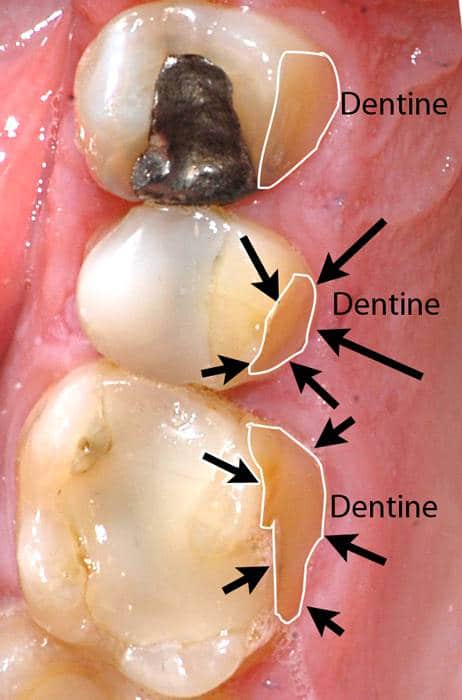

A close-up view shows the dentin surfaces that we see under the thin layer of enamel that remains, if any remain. The first tooth from the top has an amalgam. The second presents a restoration in aesthetic material of more than half of the tooth. We can notice on the third tooth the contour of the composite filling.
The consumption of soft drinks increases during hot summer days. Sweetened juices and energy drinks are increasingly part of the diet of young and old at the expense of a simple glass of water without sugar, acids and calories.
While the media focuses on the risks of obesity and diabetes with the ingestion of soft and sugary drinks, it is important to realize that drinking liquor (Coke, Pepsi), sports drinks (Gatorade, Powerade) , energy drinks (Red Bull, Monster) and other sugary juices contributes to tooth decay, dental pain and erosion of enamel.
Clinical features of dental erosion
The erosion of the enamel means a dissolution of the enamel that covers the teeth. Dental erosion is defined by the loss of dental tissue by a chemical process without the influence of bacteria. The intrinsic factors associated with erosion are found in people with eating disorders, such as bulimia and those with gastric reflux, vomiting or regurgitation. They will have acid from the stomach that will be in contact with the teeth and will see their enamel destroyed.
The exaggerated consumption of lemon can produce the same effect. A nun who told me to worship eating lemons, had practically no enamel on any tooth. She had only dentine stumps! So you have to rinse your teeth right away after eating lemon. According to the California Center for Public Health Advocacy, the average American consumes 50 gallons of soft drinks and sugary drinks a year.
Bacteria feed on what we eat and drink, especially the sugar in the food they eat and turn into acid that dissolves tooth enamel and removes minerals that protect against decay. If, furthermore, we add extrinsic factors, such as the consumption of lemons, soft drinks or other sugary or energizing drinks, these acidic drinks will promote the dissolution of the enamel all the more easily.
A neutral pH measures 7. Any measurement less than 7 indicates an acidic pH. Erosion of the enamel is possible if the oral pH is lowered to 5.5. A recent study measured the pH change of bacterial plaque after ingesting regular soft drinks, energy drinks and diet drinks. Twenty (20) minutes after ingestion of only 15 mL (1 tablespoon) of beverage, the pH was 2.65 for a regular soft drink, 3.39 for an energy drink and 3.78 for a diet drink.
Imagine the effect of a 355 mL can consumed over a 60-minute period. Imagine the effect of 2 cans during an afternoon. Imagine the effect of a 2-liter … Imagine that you keep each sip for 20 seconds.
How to defend against erosion ?
La salive est le meilleur moyen de défense contre l’érosion. Le lavage des produits acides ingérés se fait par la salive produite par nos glandes salivaires et notre facilité à avaler. Une bouche sèche favorise l’érosion, car le pH ne peut être réduit par la salive.
Saliva is the best defense against erosion. The washing of ingested acid products is done by the saliva produced by our salivary glands and our ability to swallow. Dry mouth promotes erosion because pH can not be reduced by saliva.
Drink water regularly. The water does not contain sugar, acid or calories. The water will keep the gum hydrated and rinse the food particles that would otherwise stay in the mouth. Brush teeth for 2 minutes after each meal and at bedtime.
For the sake of your health, it is time for you to stop drinking sugary drinks, whether for your children or for yourself.
